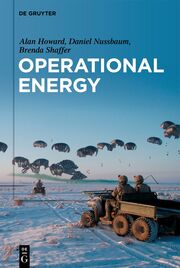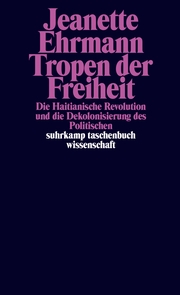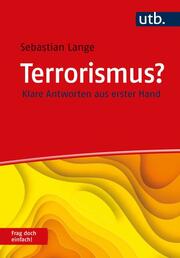Operational Energy
Bibliografische Daten
ISBN: 9783110796476
Sprache: Englisch
Umfang: 250 S., 12 s/w Illustr., 13 farbige Illustr., 6 s/
1. Auflage 2024
gebundenes Buch
Erscheint am
01.07.2024
Themenwelten
- Belletristik & Lyrik
- Krimi
- Kinder- und Jugendbuch
- Bilderbücher
- Familie
- E-Reader
- Hörbuch für Erwachsene
- Hörbuch für Kinder
- Reise
- Landkarten & Stadtpläne
- Kalender
- Politik & Wirtschaft
- Gesundheit
- Demenz
- Kochen
- Natur & Tiere
- Regionalia
- Körper und Seele
- Hobby & Basteln
- Humor & Nettigkeiten
- Geschichte & Kultur
- Schulbuch
- Lernhilfen
- Pädagogik
- Psychologie
- Partnerschaft & Erotik
- Fremdsprachige Literatur
- Theologie & Philosophie
- Fantasy & SciFi
- Lifestyle
- New Adult
- Influencer & Blogger
- Graphic Novel
- Manga
- Tickets
- Sprachen
- Biographien
- Sport
- Wissen
- Recht
- Beruf & Karriere
- EDV
- Fahrzeuge
gebundenes Buch
Vorbestellen
Beschreibung
The Operational Energy textbook provides military officers the knowledge and skills to effectively plan for the operational energy needs of their forces and missions. After completion, students should be able to carry out relevant analysis, planning and strategy across the Services and organizations of the US national security enterprise. The Pentagon defines Operational Energy (OE) as "energy required for training, moving, and sustaining military forces and weapons platforms for military operations." Planning and strategizing for these energy needs is an integral part of all combat and regular operations. Energy is one of the biggest constraints and at the same time most important enablers of ability to fulfill military missions. Moreover, proper operational energy strategies and tactics can reduce casualties and save lives. The most recent example is that fuel and water delivery missions accounted for more than one-tenth of the US military casualties in Iraq and Afghanistan. The book also examines issues that have not been discussed in previously published academic or policy literature, such as the impact of civilian demands for the military to use increased amounts of renewable energy as well as threats from the use of civilian supply chains for energy supplies. The US military is the largest consumer of energy in the US federal government. In light of this, many US public officials as part of their drive to promote greater use of renewable energy and reduction of climate altering emissions, may require that the military fuel mix include significant amounts of renewable energy and that the military reduce its carbon emissions. Accordingly, the book will examine how the US armed forces can adjust to these rising public demands, while still fulfilling its military mission. The book will also look at the security challenges of use of civilian supply chains. The US military procures most of its energy from civilian suppliers. In 2019, the US military purchased 49 percent of its fuel supplies from outside the United States, including in Asia and the Middle East. As the Covid-19 challenge revealed, critical US supply lines depend on production in China and other US adversaries. Washington recently initiated policies to reduce US vulnerability to supply disruptions of critical materials and products through reducing exposure to needs of products and materials produced in China and other countries. The implementation of these initiatives will require new strategies and policies for the US military to meet its energy needs securely.
Auf die Wunschliste
84,95 € inkl. MwSt.
Autorenportrait
Alan Howard serves as the Associate Chair for the Energy Academic Group at the US Naval Postgraduate School (NPS), Monterey, California. Prior to joining NPS, he amassed over 15 years in international shipping and logistics, including a role with global responsibility as Director of eBusiness Development for a major multinational corporation. He has authored multiple policy papers and opeds, including on energy security and operational energy. Dr. Daniel Nussbaum is the Chair of the Energy Academic Group and a faculty member in the Operations Research department, at Naval Postgraduate School. He has a Ph.D. in Mathematics, has served as Director, Naval Center for Cost Analysis, and has held other management and analysis positions with the US Army and Navy, in the US and in Europe. He has given testimony to committees of the US Congress. He is active in professional societies, is the Past President of the International Cost Estimating and Analysis Association, and he has served on the Board of the Military Operations Research Society. Prof. Brenda Shaffer is an international energy and foreign policy specialist. She is a faculty member at the US Naval Postgraduate School. Prof. Shaffer is also Senior Advisor for Energy at the Foundation for Defense of Democracies (FDD) think tank and a Senior Fellow at the Atlantic Councils Global Energy Center in Washington, DC. Prof. Shaffer is the author of several books: Iran is more than Persia: Ethnic Politics in Iran (De Gruyter, 2022); Energy Politics (University of Pennsylvania Press, 2009), Borders and Brethren: Iran and the Challenge of Azerbaijani Identity (MIT Press, 2002), Partners in Need: The Strategic Relationship of Russia and Iran (Washington Institute for Near East Policy, 2001). Shaffer is the co-author of Operational Energy (De Gruyter, 2024). She has also served as the editor of Beyond the Resource Curse (University of Pennsylvania Press, 2012) and Limits of Culture: Islam and Foreign Policy (MIT Press, 2006). Prof. Shaffer frequently provides research and expert counsel to international institutions, governments, energy companies, financial institutions, and regional security organizations. She has given testimony to several committees of the US Congress, including the Senate Foreign Relations Committee, and to the European Parliament.














